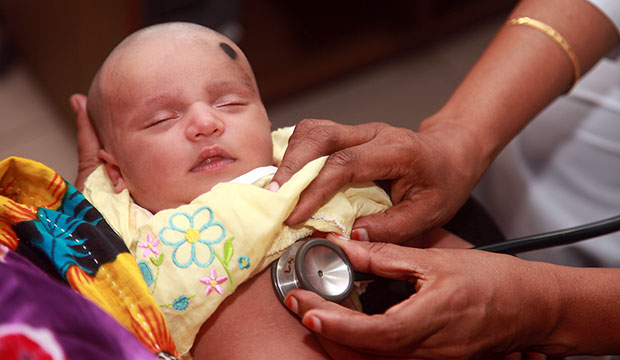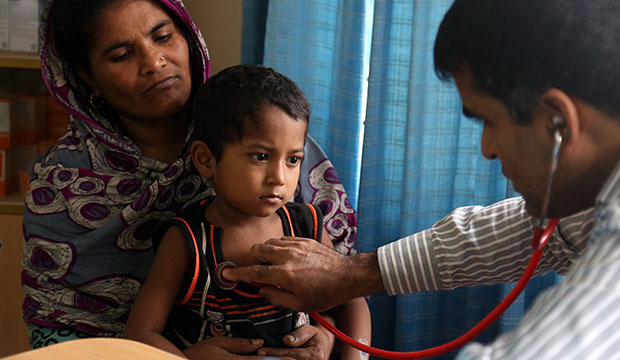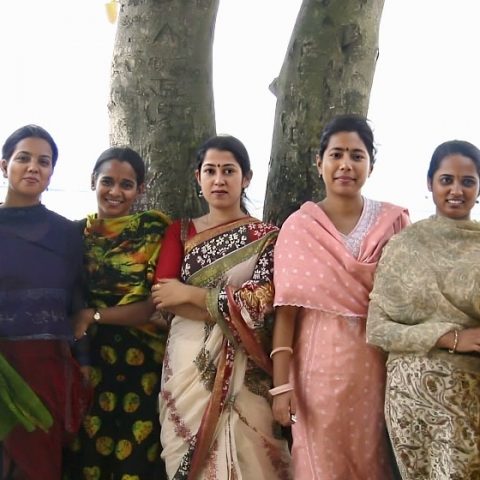Influenza is a ubiquitous virus. Most people have at some point in their lives come down with “the flu” – a week of sudden high fever and malaise caused by infection with a seasonal strain of the rapidly evolving influenza virus.
For most of us, this is more of a painful inconvenience than a mortal tragedy. Healthy adults with flu mostly recover in a week, without any medical attention. However, in the very young and the very old infections can lead to debilitating and life-threatening complications, including pneumonia.
A decade of flu surveillance work in Bangladesh has shown that influenza virus circulates throughout this resource-deprived, tropical country during most of the year. Community-based surveillance in an urban area of Bangladesh indicates that influenza infection during infancy is associated with childhood pneumonia. Reducing the burden of childhood influenza infection may therefore be an effective means of reducing the incidence of lower respiratory infections in Bangladeshi children.
Designing an effective vaccine for influenza is complicated by a number of factors. The virus is rapidly evolving, constantly changing its surface proteins from season to season. A vaccine developed today could become ineffective in less than a year. New vaccines must be released every year to match the prevalent strains identified in the preceding months. The WHO and the US Public Health Service coordinate influenza surveillance activities that help decide what influenza strains should go into the current round of influenza vaccines.
Live attenuated influenza vaccines (LAIVs) developed in Russia have been made available to several manufacturers in the global South through a WHO-sponsored technology transfer agreement. These LAIVs can be administered intranasally, making them an attractive platform for systematic childhood influenza immunization programmes in resource-deprived settings.
Most studies on the safety and efficacy of flu vaccines have been conducted in advanced economies. There is a corresponding shortage of flu vaccine trials in resource-deprived settings. Lower respiratory tract infections caused by viral infections remain common among children in Bangladesh. If a flu vaccine was shown to be safe and effective at a single dose in this population, a mass immunization programme using LAIVs could substantially reduce the morbidity from lower respiratory infections.
Researchers from icddr,b have recently published the results from a clinical efficacy trial of LAIVs in 1761 Bangladeshi children across two different study sites. The intranasal LAIV was shown to be both safe and effective at preventing flu at a single dose. These results support the implementation of a single-dose immunization campaign using LAIVs to reduce the burden of childhood respiratory infections in Bangladesh.
Work like this demonstrates the importance of carrying out safety and efficacy trials tailored to local contexts. Health workers and local governments in the global South cannot make effective policy decisions if they have to rely on data collected purely in industrialized settings. Work done by institutions like icddr,b will continue to play a vital role in overcoming this limitation.



